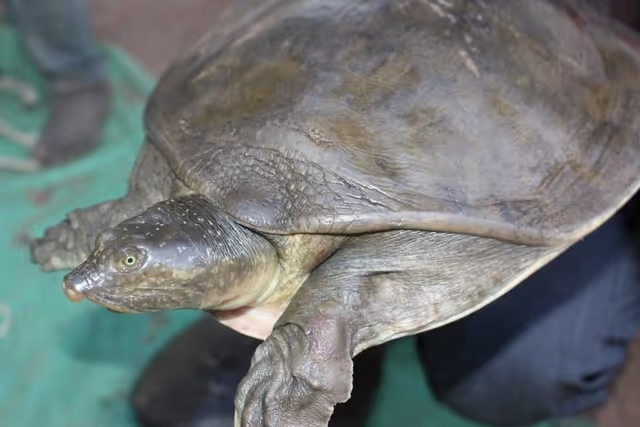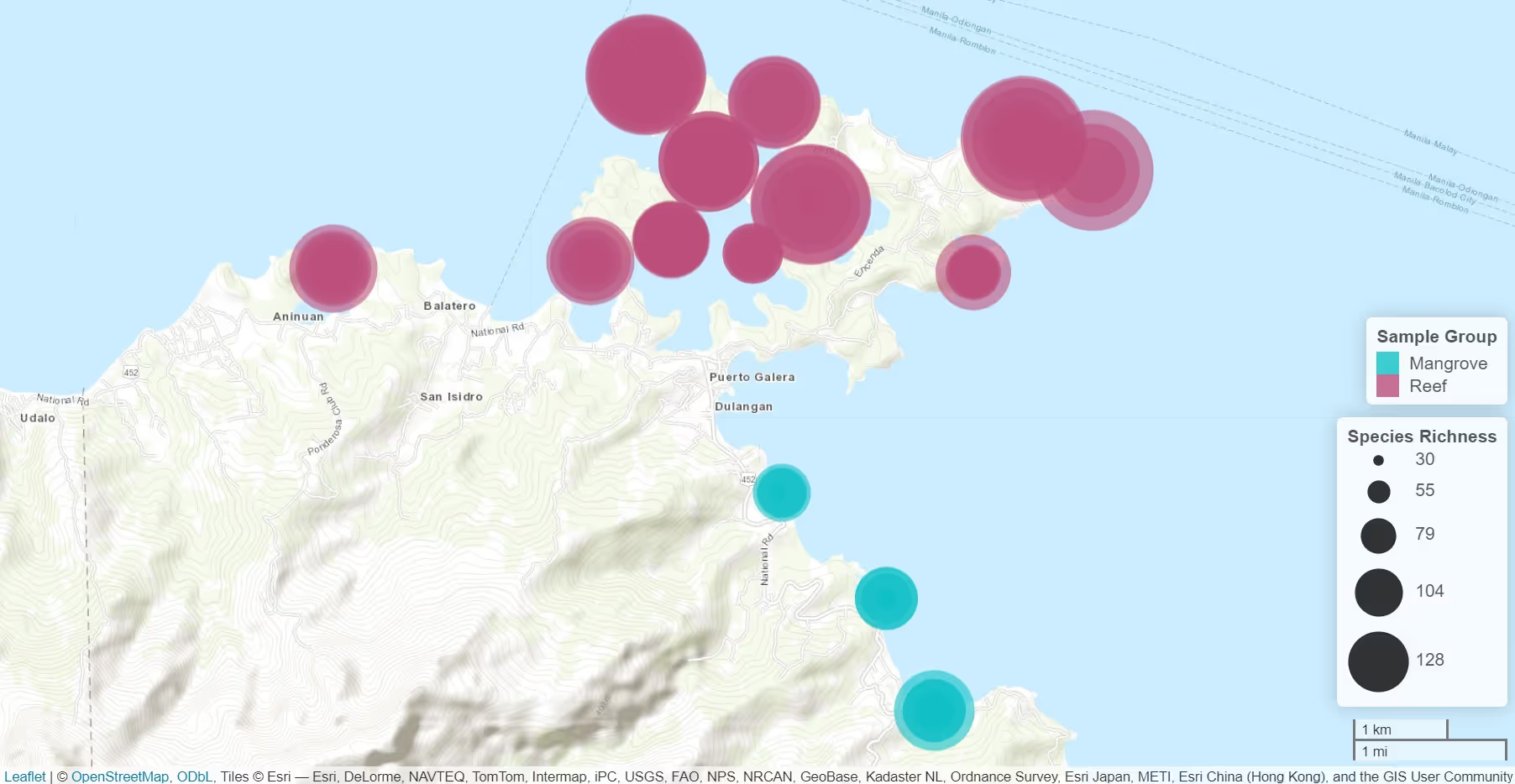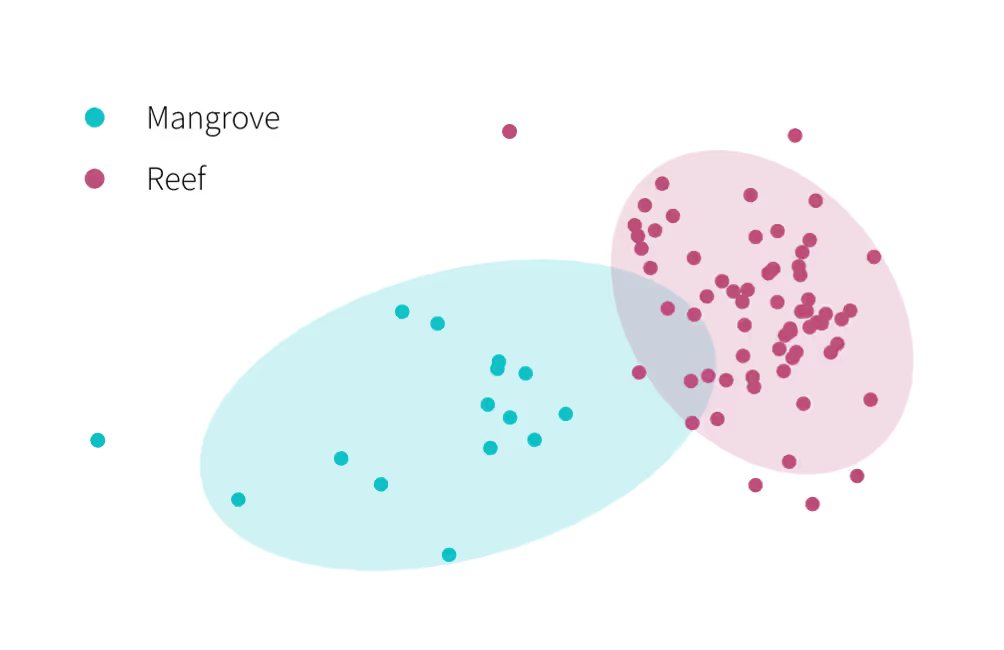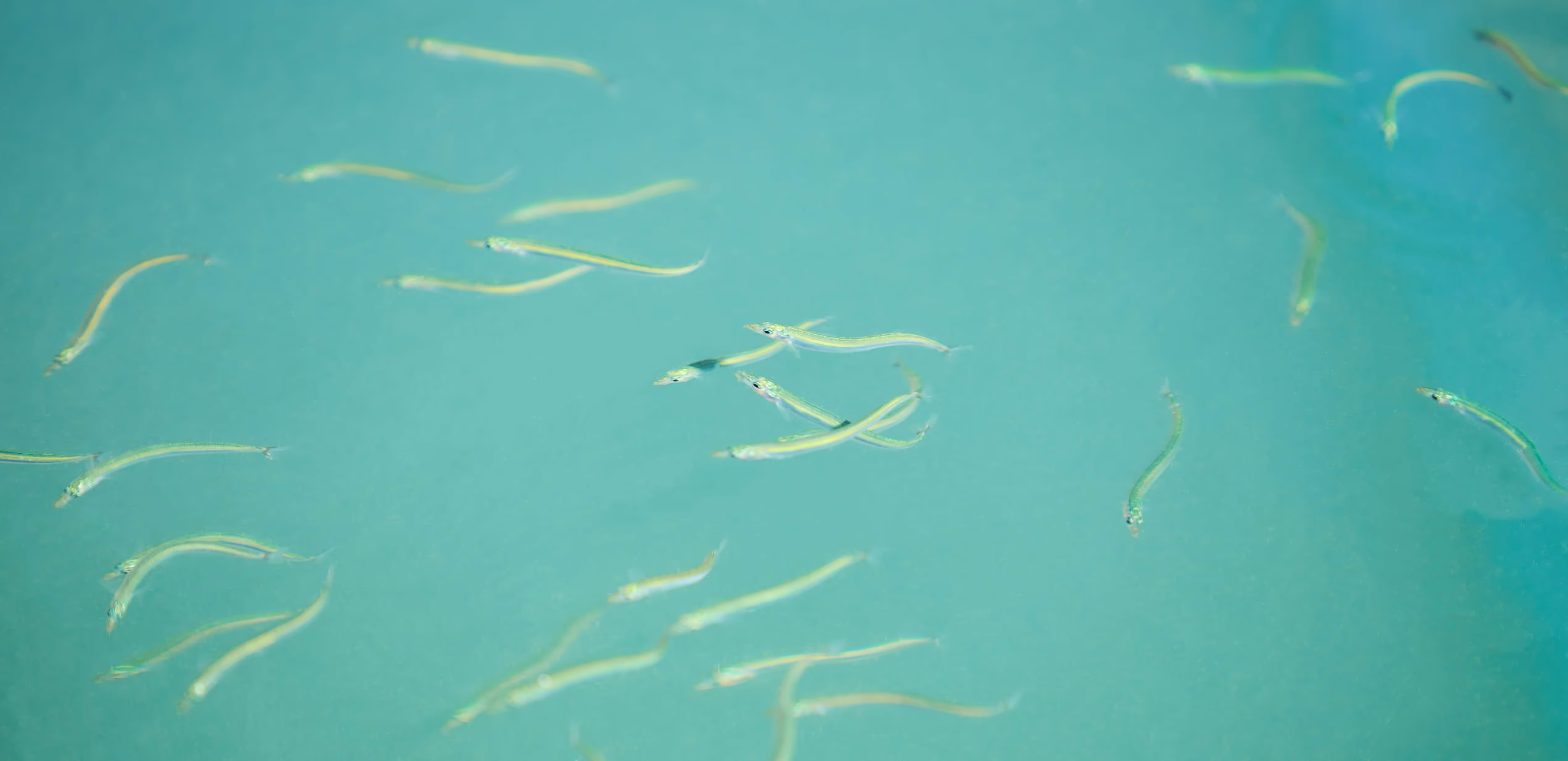A paradigm shift in sustainable construction
59 species detected quickly and affordably with eDNA, supporting local environmental management efforts

A collaboration between
Project Snapshot
Overview
Embarking on a Ghanaian road construction venture, Ramboll, QGMI, and NatureMetrics seamlessly blended innovation and environmental stewardship. Employing NatureMetrics’ innovative eDNA technology, this project not only contributed towards local ESIA and BAP reporting but also revealed 59 species, including the vulnerable Senegal flapshell turtle, setting a high standard for biodiversity reporting and sustainable construction practices in the region.

The Challenge
QGMI faced the imperative of aligning with local environmental and social impact assessment (ESIA) regulations. Their goal: mitigate risks to local wildlife and enhance habitats to support species diversity. However, the project encountered hurdles, particularly during the challenging wet season, requiring innovative solutions to access sites and generate important site-based biodiversity data.

Our Role
In collaboration with NatureMetrics, Ramboll and KNUST, QGMI navigated these challenges. Ten water samples were collected along the Bolgatanga road, complemented by a fishing netting survey. NatureMetrics played a pivotal role, training academics from Kwame Nkrumah University of Science and Technology (KNUST) to perform eDNA fieldwork during the rainy season. With in-field eDNA kits, swab kits, DNA barcoding services, and a comprehensive DNA analysis/reporting service, the team was equipped for robust biodiversity exploration.

The Findings
From just ten water eDNA samples, we unveiled a treasure trove of biodiversity. The team detected the vulnerable Senegal flapshell turtle, categorised as Vulnerable by the IUCN. This innovative approach identified 59 species, providing a comprehensive snapshot of the area, including 35 fish, 7 amphibians, 11 birds, 5 mammals, and a reptile. Notably, a critical revelation occurred thanks to DNA analysis, where the field team initially believed they had found a Critically Endangered Nubian Flapshell Turtle but DNA results clarified it to be the vulnerable Senegal Flapshell turtle- Showcasing the usefulness of accurate DNA-based monitoring when dealing with the vast diversity of species occurring on these sites.

The Impact
This project's impact goes beyond species identification and towards transforming how the industry carries out wildlife reporting. The cost-effective and rapid eDNA method allowed for reporting during both wet and dry seasons, driving efficiencies in the construction timeline. NatureMetrics' eDNA survey facilitated the generation of data on 59 species with minimal training and technical supervision, crucial for the ESIA and the Biodiversity Action Plan (BAP) developed by QGMI. This real-time monitoring now extends throughout the road project's lifecycle, tracking impacts on local habitats and species. QGMI's commitment is reflected in the ongoing Biodiversity Action Plan, including the collection and sampling of another ten water eDNA samples during the dry season, among other biodiversity actions. A testament to how innovation in construction can drive lasting positive outcomes for both nature and infrastructure.








.avif)